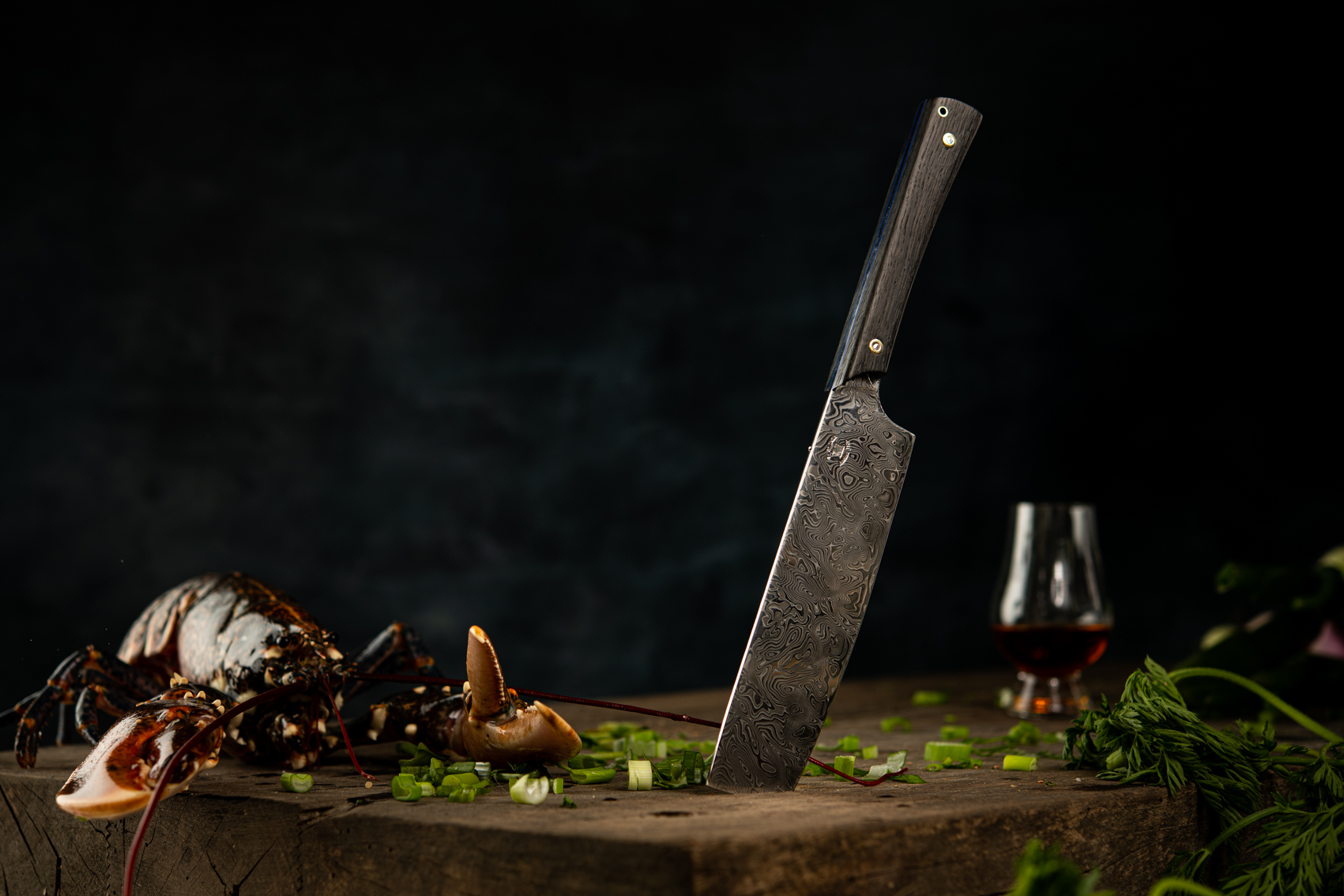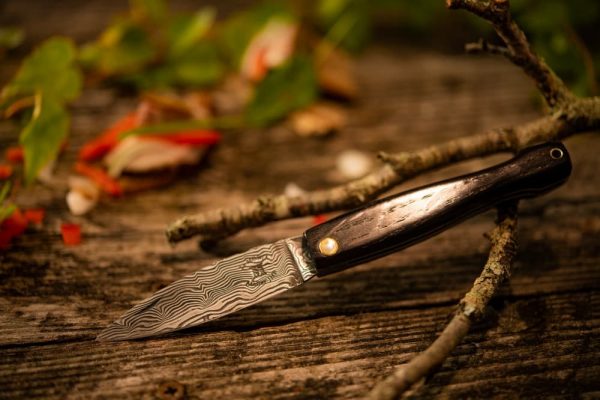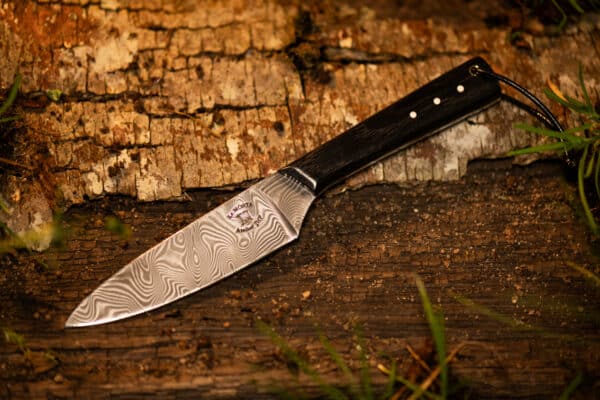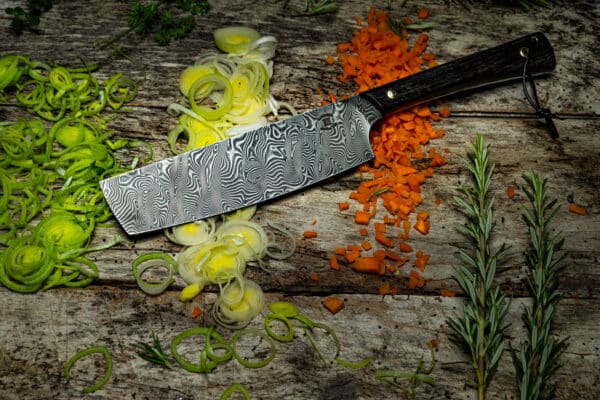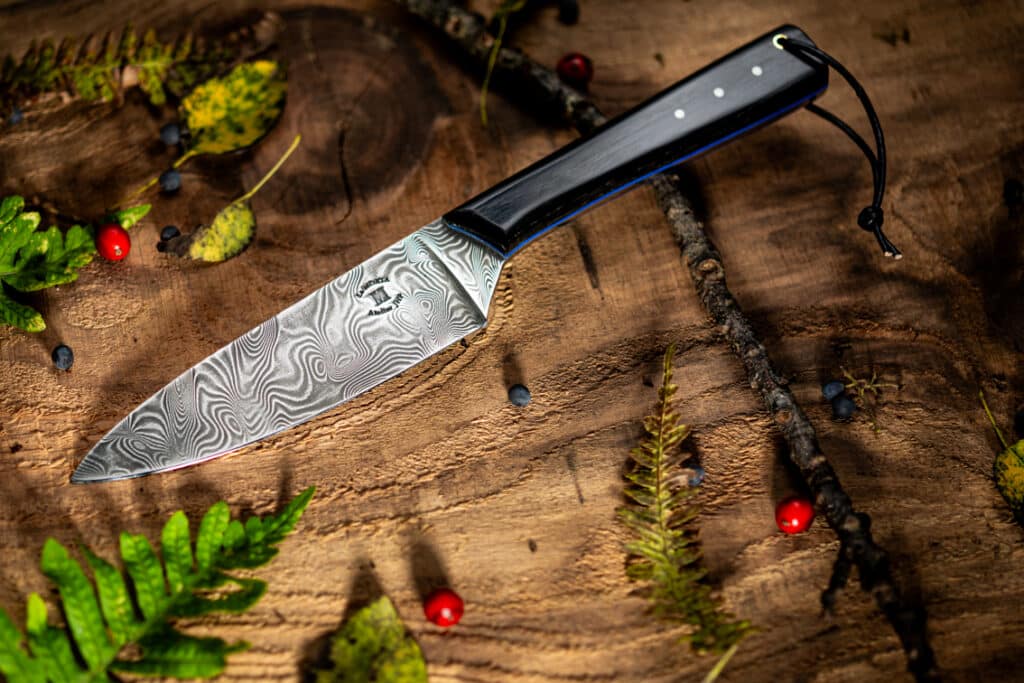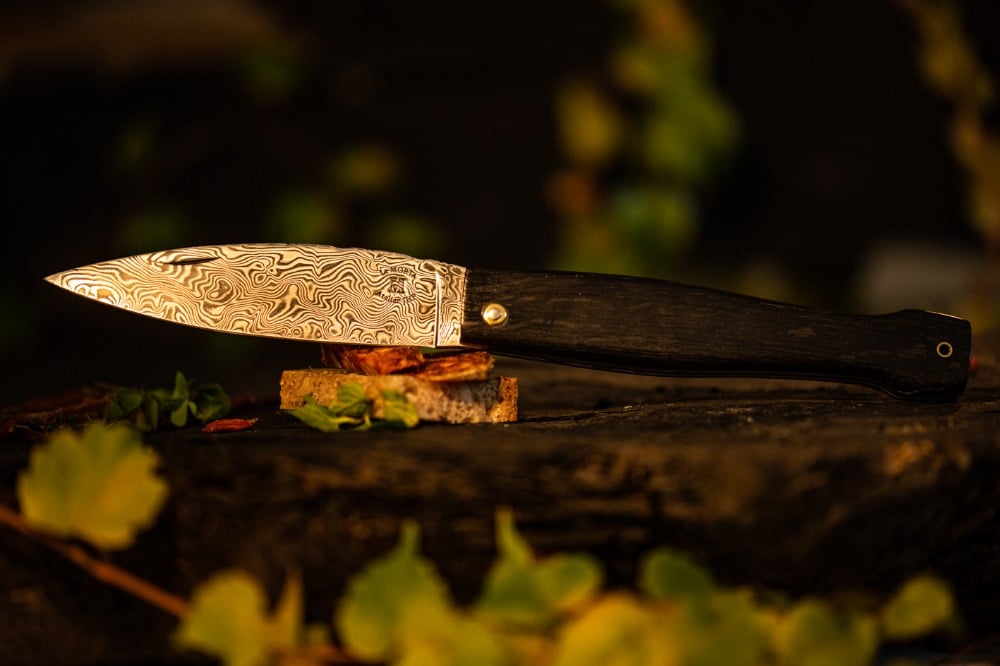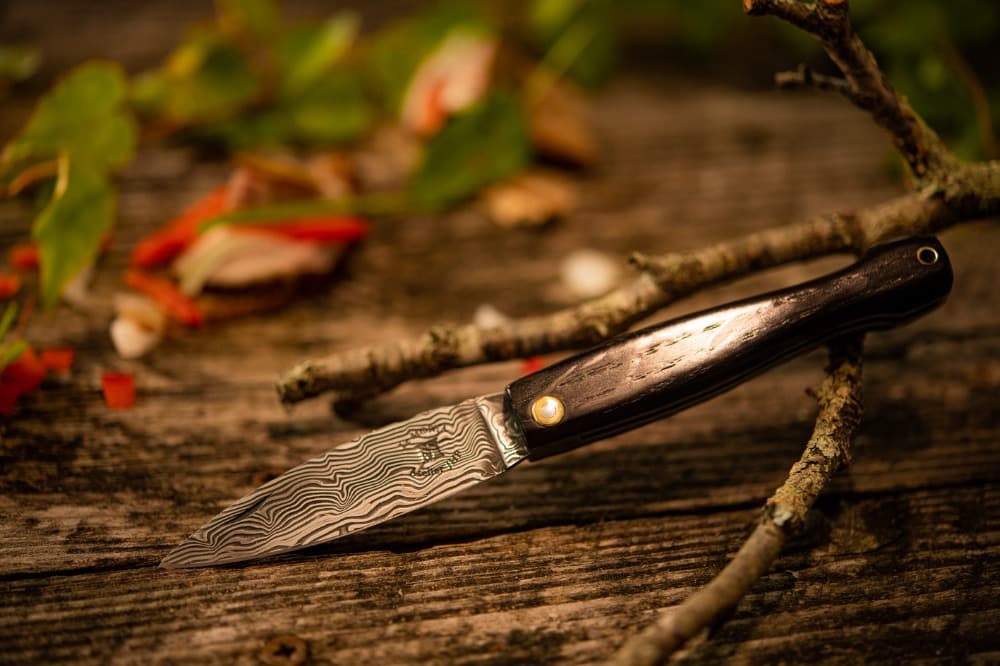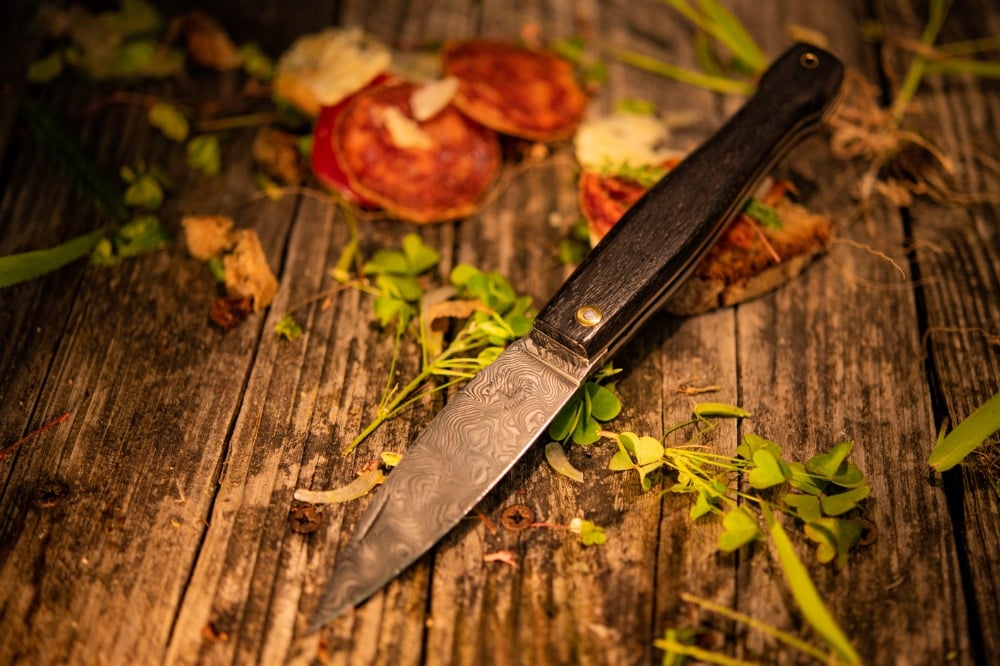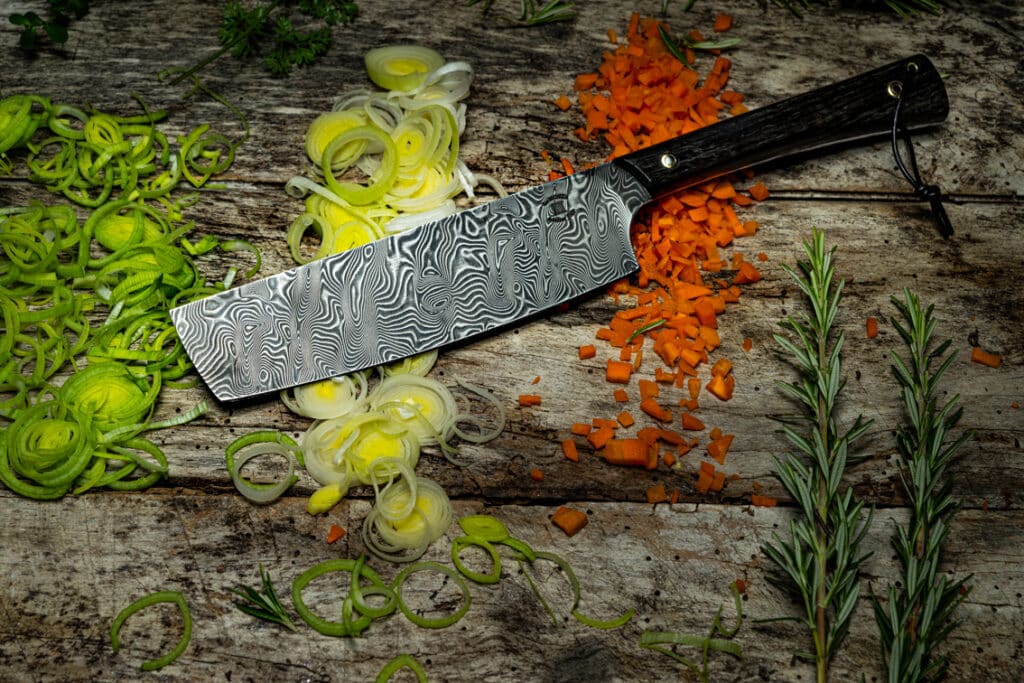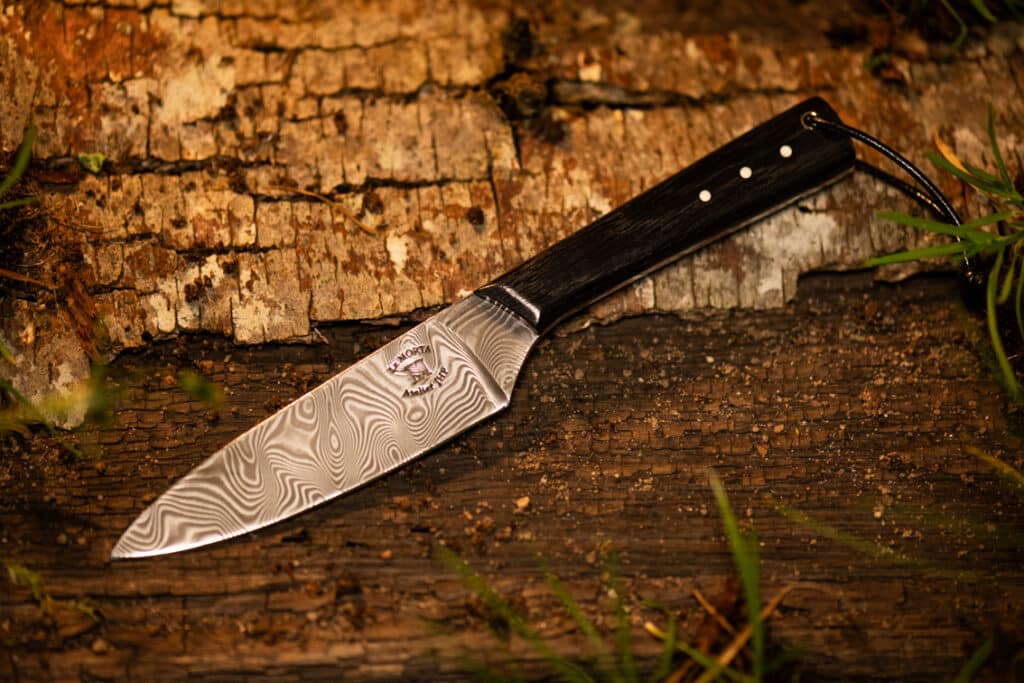Damascus steel, with its distinctive patterns and durability, has always been a subject of fascination for knife enthusiasts. Originating from the city of Damascus, this steel has a rich history and is often associated with high-quality blades. At Couteaux Morta, we are proud to use this exceptional steel to craft top-tier artisanal knives. But what makes Damascus steel so special, and is it truly the best choice for a knife?
What is Damascus steel?
Damascus steel is a type of steel that is made by layering and folding different types of steel, often iron and steel, to create a unique pattern. This pattern results from alternating layers of different steel types, such as high carbon steel and stainless steel.
Historically, Damascus steel was made from a type of steel called wootz steel, which was renowned for its strength and ability to retain a sharp edge. Although modern damascus steel differs from the original sold in Damascus, it retains many qualities that make it valuable for knife-making.
How does Damascus steel compare to other knife steels, like stainless steel, carbon steel ?
When it comes to knife-making, there are several types of steel to consider. Here’s how Damascus steel compares:
Stainless Steel
While stainless steel is known for its corrosion resistance, it often lacks the edge retention and sharpness of Damascus steel. However, stainless steel knives are generally more affordable.
High Carbon Steel
High carbon steel can retain a sharp edge similar to Damascus steel. However, it’s more prone to rust and requires more maintenance.
Modern Damascus Steel
Modern Damascus combines the best of both worlds, layering high carbon steel with stainless steel for both sharpness and durability.
Specialty Steels
There are various specialty steels, each with its unique properties. However, none have the combined aesthetics and functionality of Damascus steel.
The craftsmanship behind Couteaux Morta’s Damascus knives
At Couteaux Morta, we pride ourselves on blending the age-old artistry of knife-making with cutting-edge techniques. Our Damascus steel knives are a testament to this commitment. The process begins with the selection of the finest steels, including Damascus steel.
Instead of traditional forging, Couteaux Morta employs the advanced technique of powder metallurgy to craft its Damascus blades. This method involves mixing different types of powdered steel, which are then compressed under high pressure to form a solid piece.
The resulting billet is then heated, allowing the powders to fuse together, creating the distinctive patterns and layers associated with Damascus steel.
After this fusion process, our blades undergo meticulous hand-sharpening to ensure a razor-sharp edge. Each knife is then assembled with precision, incorporating high-quality materials for the handle, such as Morta, a unique fossilized wood. This combination of modern metallurgy and traditional craftsmanship ensures that every Couteaux Morta knife is not only a functional tool but also a masterpiece in its own right.
Are the benefits of Damascus steel for knives real?
One of the primary advantages of Damascus steel is its durability. Thanks to the combination of different steel types, like high-carbon steel, Damascus steel knives retain their edge longer than ordinary steel knives.
Moreover, Damascus steel is often linked to superior aesthetics. The unique patterns of Damascus steel, resembling waves or marbling, make it instantly recognizable and highly sought after for chef’s knives or collector’s knives. Additionally, Damascus steel is also corrosion-resistant, meaning it doesn’t rust easily, especially when paired with stainless steel. This makes it ideal for kitchen knives, where rust resistance is crucial.
How to maintain and care for your Damascus steel kitchen knives?
Damascus steel, although robust, requires specific care to maintain its sharpness and beauty. At Couteaux Morta, we want our customers to enjoy their knives for many years. Here are some tips for maintaining your Damascus steel kitchen knives:
- Maintaining the edge: Use a quality sharpening stone to regularly sharpen the blade of your Damascus knife. Proper sharpening not only ensures effective cutting but also extends the life of your knife.
- Cleaning and maintenance: After each use, clean your Damascus blade by hand with warm water and mild soap. Avoid dishwashers, as they can damage the blade. Thoroughly dry the knife with a soft cloth to prevent rust formation.
- Maintenance accessories: Couteaux Morta offers a range of accessories specially designed for the maintenance of your knives. Whether it’s protective oils or storage sheaths, we have everything you need to care for your Damascus steel blade.
Why choose a real Damascus steel knife from Couteaux Morta?
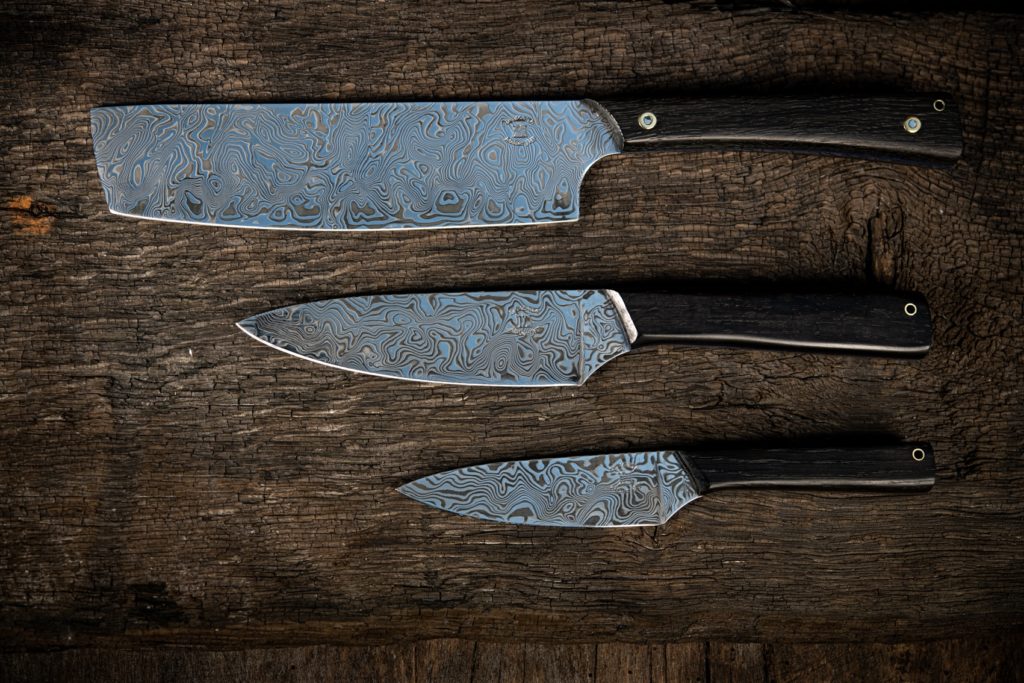
Damascus steel is a historical material, renowned for its strength and beauty. At Couteaux Morta, we combine this legacy with modern techniques to create exceptional knives.
Choosing a Damascus steel knife from Couteaux Morta means opting for a unique piece, crafted with passion and expertise.
Whether you are a professional chef or a lover of beautiful blades, our Damascus steel knives will meet your needs while adding a touch of elegance to your collection.
Conclusion
The allure of Damascus steel stands out, not just for its distinctive patterns but for its historical significance and unmatched performance. At Couteaux Morta, we take pride in merging this ancient art with contemporary craftsmanship, ensuring that each knife is not only a functional tool but a piece of art.


